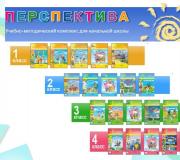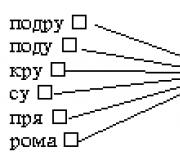Complete collection of Russian fairy tales. All books in the series "Complete collection of Russian fairy tales"
Complete collection of Russian fairy tales. The author of the series is A. Shevtsov. Ivanovo: Roshcha, 2016.
From the very beginning of the Russian spiritual Renaissance, something like the following should have been written on the pediments of our higher institutions - educational and not: “To know Russia means to know yourself.” But - how to know? And is Russia knowable in principle?
The interest of the Russian intelligentsia in Russian folklore awoke a long time ago: in fairy tales, even two hundred years ago, a certain subtext was felt, or, more precisely, a national code, in which both the emotional architectonics of the people and an encrypted prophecy about their historical fate were discerned.
Any linguist, and not necessarily an exalted esotericist or, on the contrary, a focused hermeneutic-heraldist, in contact with a fairy tale feels that he is dealing not with some abstract foxes and roosters, but with a typical (recommended for everyone) reaction of a conventional hero (Ivan, soldier, hare) to a by no means conditioned stimulus - a life conflict or a moral dilemma.
As the publisher of the “Complete Collection of Russian Fairy Tales” Alexander Shevtsov writes, almost for the first time the question of cataloging fairy tale texts itself was raised by the Russian Geographical Society, created in 1845. However, a “federal level” publication was never compiled.
The deficiency was filled by A. Shevtsov himself: his team and the Ivanovo publishing house “Roshcha” made a truly heroic attempt to combine the research of the two previous centuries.
At the same time, the publication compensates for the shortage not for scientists, but, first of all, for the mass reader: the author of the series publishes in the “Complete Collection...” only what has already passed the stage of scientific processing of the text. Thus, he began work on “The Complete Collection...” in the 1990s. with the famous folklorist, editor-in-chief of the almanac “Russian Archive”, laureate of the State Prize of the Russian Federation (1997) Alexei Nalepin, and in order to eliminate some ambiguities in the use of words of the 19th century. Scientists from the Russian Academy of Sciences and the Pushkin House were involved in the textual editing of the “Complete Collection...”.
Today there are more than one and a half dozen volumes of the “Complete Collection...”. In them:
Arkhangelsk fairy tales from the collection of N.E. Onchukov,
Olonets fairy tales (according to the notes of A.A. Shakhmatov, teacher D. Georgievsky, M. M. Prishvin),
Fairy tales and songs of the Belozersky region from the collection of B. and Y. Sokolovs,
Russian and foreign tales and songs of Siberia from the notes of the Krasnoyarsk subdivision of the East Siberian department of the Russian Geographical Society,
Northern tales from the collection of O.E. Ozerovskaya (books “Grandmother’s Antiquities” and “Five Speeches”),
Tales from the book “The Cure for Thoughtfulness” (1782-1787), which contains the first printed Russian fairy tales,
Fairy tales and riddles from the Great Russian collections of I.A. Khudyakov,
Fairy tales of the Vyatka province from the collection of a member of the Russian Geographical Society D.K. Zelenin,
Fairy tales from the book “An Old Horn in a New Way” (1794-1795),
Great Russian fairy tales from the archive of the Russian Geographical Society, selected from it by A.M. Smirnov,
Fairy tales and legends of the Samara region, collected by D.N. Sadovnikov,
Collections of tales of rural teachers under the general editorship of A.A. Erlenwein and a collection of fairy tales, jokes and fables by E.A. Chudinsky,
Fairy tales from the northern collections of I.V. Karnaukhova,
East Siberian fairy tales by M.K. Azadovsky,
Collection of fairy tales by A.K. Baryshnikova,
Fairytale collection by B. Bronitsyn and I.P. Sakharov,
A fabulous two-volume book by V.A. Levshin.
The collection is truly impressive. Today, every superficial connoisseur of the subject can reproach it for its deliberate incompleteness, however, despite the apparent vulnerability of the “Complete Collection...”, it is precisely, in contrast to strictly scientific ones, magnificent, but - what a shame! - non-implemented projects - exist.
The content alone will make any head spin: more than half of these tales have not been read by any modern people at all. This is where the abysses are!
Have you heard anything about “The Warlock Tsar” or “Ivan Tsarevich in the Underworld”? Maybe about a creation called “I, or not I?” - pure Khodasevich! - or about “Flying Son”?
An inscrutable chthonic horror emanates from such things as “The Grateful Dead” or “Self-Immolation”, but adjacent to them are the mysterious “Careless Monastery” and the God-cursed, but certainly magnificent “Babylon-City”. Both despair and happiness - choose which one.
By the way, here is Gogol - “On the Lesh to St. Petersburg,” an Arkhangelsk unprecedented, by Savva Yakovlevich Korotkikh. Or here’s a thriller, the art of naming which the authors of modern dull detective stories should learn from - “The Dead Body of Ivan the Red Face” from grandmother Ovdotya...
The Russian world turns out to be permeable through and through with echoes of the West and East - either you go to heaven yourself (a good third of the plots are a feat of walking), then Christ himself will easily knock on your door. Not only sorcerers and devils - and King Peter, and King Solomon, and the Pope!
How do you like the Biysk (Tomsk province) “The legend that formerly kings were brought by the devil from the East”?
...This brief information has one purpose: to mention a unique publication that may get lost in the information flow. But until this happens, know: “The meeting...” exists.
Sergey Arutyunov
Telling fairy tales was an ancient custom that accompanied Russian people throughout their lives. The art of storytelling was accessible to everyone - both adults and children. But at the same time, there were always talented storytellers among the people who were especially valued. Crowds of eagerly listening children gathered around them. Hunters who went into the forest for a long time to hunt for their prey specially hired them to entertain them with interesting tales during long evenings around the fire. Unfortunately, the names of such storytellers, for the most part, have not reached us.
In the 18th century, fairy tales began to be published, and in the 19th century people appeared who set themselves the task of collecting and trying to somehow systematize oral folk art. At that time, the fairy tale was already considered to be passing away, and collectors tried to preserve and somehow comprehend this heritage. People read fairy tales published at that time and carefully kept them on their bookshelves. For example, the collection “An Old Hoot in a New Way,” published for the first time in the 18th century, was in the library of A. S. Pushkin.
Unfortunately, many collections of Russian fairy tales were published only once, and over time they became a real bibliographic rarity and were very difficult to find. But it is in those ancient books that fairy tales have been preserved, which in the best possible way allow you to feel all the originality of the folk speech of that time and get acquainted with pictures of folk life, folk mythology and worldview.
That is why we set out to publish the Complete Collection of Russian Fairy Tales. We want to bring Russian fairy tales back into modern life. After all, they contain folk wisdom, they help preserve and hold on to the thin thread that connects us with our roots. First of all, this applies to the rarest collections, which are inaccessible to modern readers, since they are stored only in the largest libraries of the country. I especially want to convey them to our contemporaries - historians, cultural experts, philologists and ethnographers, and just ordinary people who are not indifferent to our origins.
Some collections, in addition to fairy tales, also included jokes, fables, rare recordings of ballads and epics, spiritual poems and buffoons - as, for example, in the books by O.E. Ozarovskaya “Pyatireche” or “Russian fairy tales and fables” by A.A. Erlenwein and E.A. Chudinsky.
The plots of Russian folk tales are varied; reality and magic are sometimes intricately intertwined in them. The language is lively, figurative and even poetic. We still have to explore and explore all this in order to understand the meaning and realize the full depth of the folk tale. We hope our Complete Collection of Russian Fairy Tales will help you with this.
(download in PDF format, 3.7 MB)
Other books on similar topics:
See also in other dictionaries:
See the park... Synonym dictionary
Roshcha Yol: Roshcha Yol (tributary of the Bolshaya Lyaga) is a river in Russia, flowing in the Komi Republic. Roshcha Yol (tributary of the Lower Dvoinika) is a river in the Russian Federation, flows in the Komi Republic ... Wikipedia
GROVE, groves, women. Small, usually deciduous forest. “The grove is already shaking off the last leaves from its naked branches.” Pushkin. “Farmsteads are drowning in cherry groves.” A.K. Tolstoy. “On a hot day, wander through the groves and meadows.” Krylov. || Distinguished by some... ... Ushakov's Explanatory Dictionary
grove- incense (Frug); green (Berg); mute (Nadson, Fet); senistaya (Ryleev) Epithets of literary Russian speech. M: Supplier of His Majesty's court, the Quick Printing Association A. A. Levenson. A. L. Zelenetsky. 1913. grove About density, height, elegance ... Dictionary of epithets
A small area, often isolated from the main forest area, usually consisting of even-aged deciduous trees (birch, oak, etc.) ... Big Encyclopedic Dictionary
GROVE, and, female Small, mostly deciduous forest. Berezovaya r. | decrease grove, s, female Ozhegov's explanatory dictionary. S.I. Ozhegov, N.Yu. Shvedova. 1949 1992 … Ozhegov's Explanatory Dictionary
Etc. see grow. Dahl's Explanatory Dictionary. IN AND. Dahl. 1863 1866 … Dahl's Explanatory Dictionary
Although the Celts sometimes built temples to worship their gods, they more often used natural features of the landscape as cult centers. Most often, the locations of sanctuaries among the Celts were sacred groves, in which... ... Encyclopedia of Mythology
GROVE- a small, usually deciduous forest, usually combined with fields or pastures. Ecological encyclopedic dictionary. Chisinau: Main editorial office of the Moldavian Soviet Encyclopedia. I.I. Dedu. 1989 ... Ecological dictionary
grove- grove, gen. pl. groves and obsolete groves. In poetry of the 19th century, the version of groves was common. For example, in A. Odoevsky: “Our gaze is in the green sea of Native fields, and groves, and hills” (How sweet the first day...) ... Dictionary of difficulties of pronunciation and stress in modern Russian language
grove- A single species of wood or part thereof. [GOST 28329 89] Topics: landscaping General terms, types of plantings... Technical Translator's Guide




